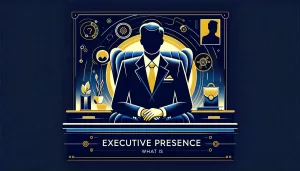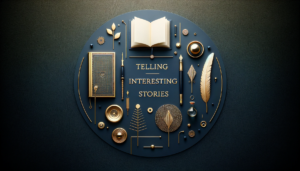Napoleon has more books written about him than any person in history except Jesus Christ, so there are definitely some personal brand building tips we can learn from him.
When someone says Napoleon, do you think ‘Napoleon who?’
Probably not—that is how strong Napoleon Bonaparte’s personal brand is.
How did he build such a strong brand? Conquering Europe is a great start, but for those of us who are not one of history’s greatest military strategists with an army at our back, we can study his life to find ways to brand ourselves.
Then, you can build yourself a brand so strong people won’t have to ask, “John who?” (Disclaimer: Latinpersarios does not recommend conquering Europe to build a personal brand.)
It is my goal to share with you some of the lessons and insights that we can take from Napoleon’s life and apply these to our journey towards building a personal brand that has a long-lasting impact.
When professionals want to position themselves as thought leaders, we usually recommend starting with a niche.
But why not, after dominating your niche, aim to take over the world as Napoleon did?
Keep in mind that not everything that Napoleon did was good. And he sure had his share of luck. In this blog, we’ll talk about many aspects of his life and how to incorporate them, or not, into our lives.
(Please note that, if not stated, all the quotes in italics about Napoleon are from Paul Johnson and come from his book Napoleon. )
Contents
- 1 Use power of be crushed by it
- 2 Get lucky by seeking your luck
- 3 Boosting your ego can boost your impact
- 4 Train your brain to gain an advantage
- 5 Read, read, and read some more
- 6 Study the greats in every field
- 7 Switch lanes with an apprentice mindset
- 8 Be obsessed or be average
- 9 Stop wanting to be accepted
- 10 Use hate to move past the gate
- 11 Leverage stories to influence others
- 12 Incentivize to capitalize
- 13 Embrace your inner control freak
- 14 Change The World With These Personal Brand Building Tips
Use power of be crushed by it
Many people associate power with negative situations and outcomes.
Gandhi had power and used it for good.
Nelson Mandela had power and also used it for good.
So was the case of Dr. Martin Luther King.
Power is having the ability to make change happen or influence the behaviors of others to arrive at a desired outcome.
If you think power is bad, you will never have it, and you will never do anything meaningful.
Napoleon understood the game of power.
“The object of power, in his view, was not only to crush opposition to his will, but more usually to inspire fear, so that power did not need to be used at all.” – Paul Johnson
He didn’t always use power for good. Some say he rarely used it for good. Yet, there is no doubt that he knew how to use it.
And we can all learn from how Napoleon used power to create change in Europe.
If you’d like to learn about leveraging power, a great place to start is by reading The 48 Laws of Power by Robert Greene.
Get lucky by seeking your luck
Whether you like it or not, randomness (which is what luck really is) will play a part in most areas of your life. Instead of fighting it, embrace it.
Napoleon had his share of luck and more.
He was born in 1769 on the island of Corsica. Just one year before he was born, that island was Italian territory.
Because of some random geopolitical events, he was born a French citizen instead of an Italian citizen, which clearly had a huge impact on the way his life turned out to be.
Luck also saved his life during The Revolution. Robespierre fell from power in 1794 and was guillotined. Later, Napoleon was identified as Robespierre’s protégé and arrested.
This was a historic period where people were being guillotined left and right. And he survived.
“He was right to thank his stars for his survival, for many were executed on much less evidence.” – Paul Johnson
Bonaparte also had at least nineteen horses killed under him in battle. This means that a spear, a sword, or a bullet killed the horse that he was riding in battle while he remained intact.
That’s a large amount of “near-death” encounters and escapes.
Yet, to be lucky enough to survive the revolution he had to go through it. To be lucky enough to survive at least 19 battles where his horse was killed from under him he had to be in a lot of battles.
Want to get lucky? Start looking for opportunities and situations that are considered “risky” but are not so risky for you because you have some kind of edge.
Want your personal brand to get lucky? Start creating content consistently, in line with a strong personal branding strategy, and you’ll have more chances to go viral.
Boosting your ego can boost your impact
To be great you have to believe you can be great. Period.
This comes up over and over in the lives of those who accomplished great things.
You must believe in yourself and your potential.
Napoleon believed in himself. As Paul Johnson mentions, “He felt he had a destiny, and most of his life he was confident in it.”
The same happens with many other historical figures who changed the world.
Christopher Columbus had never led a crew or been on a ship when he pitched the idea of going to the “new world” and finding treasure. And that didn’t stop him or made him doubtful when sharing his ideas with the Spanish Crown. That is because he believed it was his destiny to accomplish great things. So was the case with Napoleon.
Rockefeller, Oprah, and Churchill are also all famous for their vision and self-confidence.
If you have to err on the side of too much ego, do so. Do it for yourself and for the positive impact you can have.
Be bold and arrogant about goals that can change the world positively and the hate you’ll get for it will not affect you.
Don’t pay attention to what others think about you and your goals (more on this point later).
Train your brain to gain an advantage
You don’t need to be a genius to be successful, but you do have to use and nurture your brainpower. There is no way around this.
Napoleon trained and used his mind.
One of the variables that separated him from other military leaders is that he paid attention to the role of calculation in war.
He was always analyzing variables like distances, speed and route, and quantities of supplies.
“He made a habit of working these things out in his head, so that they could easily be dictated to others. He also became a master map reader, with a gift amounting almost to genius for visualizing terrain from a two-dimensional, often fallible piece of engraved paper.” – Paul Johnson
When officers were asked about the timelines of a siege, most weren’t able to answer. But “Bonaparte would consult a map and give the answer in exact days and hours.”
Many abilities that seem like a superpower are abilities that have been honed and perfected for years. People see the result but don’t see the work.
An example of this is the book Moonwalking with Einstein, where you can learn about how to cultivate your brain and acquire the “superpower” of memory.
It’s not sexy to do the work. This is why most people avoid it. And it is why some skills seem like a superpower.
If you train your brain, it could become your superpower and it will give you an advantage.
Which superpower do you want to develop?
Read, read, and read some more
I won’t get tired of saying this. You must read to lead.
This is another one you can’t escape – especially now that we have books, podcasts, online courses, and knowledge available everywhere (which becomes an obstacle in itself because of information overload but that’s a topic for another time).
If you want to change the world you have to:
- Read about others who change the world
- Read about how the world has changed over the years
- Read about the changes that are currently happening
- Read about the variables that can create change
- Read about doing
- Read about leading
- Read about reading
- Read
- Read
- And then read some more
In every biography of a world-class figure, you’ll likely find some mentions of their reading habits and how much they valued their books.
Napoleon, along with many of the world’s top historical figures and leaders, was an avid reader.
“…he tried to educate himself by intensive reading, as the young Winston Churchill was to do during his Indian service.” – Paul Johnson
To keep it simple. Start reading about topics you are interested in or challenges you are facing. This will help you get started and build the habit.
If you already have the habit, then it’s about maximizing your reading time by picking the best books.
A great place to start is to subscribe to the newsletters of other avid readers which will serve as a filter of books. You can take the first step into becoming a better reader by subscribing to the Mindful Business Book Club newsletter.
I share it monthly and it has insights and highlights from the 4-10 books I read every month.
Study the greats in every field
It’s great if you are already an avid reader. But at some point, you have to take your habit up a notch if you want to make it one of your superpowers.
It’s not just about reading but reading about the lives of other people who achieved great things and changed the world.
Napoleon understood the value of learning from others who had achieved what he wanted to achieve. He often made assumptions about what “would have been Caesar’s choice” whenever he faced military challenges. Great historical figures are often students of the lives of previous historical figures.
The same is the case with Beethoven, who esteemed Bonaparte and “likened him to the great Roman consuls.”
If you want to be great, you must:
- Read about the greats in your niche
- Read about the greats of all time
Get your hands on as many biographies as you can.
A great place to start is Paul Johnson’s biographies. These are shorter than most and digestible. His books are usually less than 200 pages. Much shorter than the typical 1000+ pages biographies.
After getting started with biographies, you can go deeper into any particular figure if you want more details about their life.
Switch lanes with an apprentice mindset
As you achieve success and start to dominate your niche, you must beware when switching lanes.
You can switch lanes. But do so with the right mindset.
“Stay in your lane” is bad advice.
“Switch lanes with a beginner’s mindset” is good advice.
A mistake that must be avoided is to let successes in one area make you think that you can easily translate that into quick success in another area.
Napoleon once thought his military successes meant he was also a successful writer.
He told the renowned writer Goethe that he kept his novel Werther (one of the most famous novels in history) in his traveling library, and praised the writer, but mentioned that he had “some criticisms to make.”
As you start to apply your personal brand strategy, you will be tempted to create content about many things.
Staying in your niche will be tough because you’ll feel limited.
But you must stay the course until you are successfully dominating that niche.
Then, you can start thinking about switching to another lane, but keep in mind that you’ll be starting from the bottom in that niche.
Be obsessed or be average
Connect to your purpose and you will find an almost endless source of energy.
If you want to change the world you must be obsessed with the change you want to make.
There’s no way around it.
If you want a balanced and calm life, that is perfectly fine. “Success” can mean different things for different people. But don’t expect to make a dent in the world without an obsessive mindset.
Pierre-Louis Roederer, a journalist, and a Napoleon admirer, once mentioned that “He can work eighteen hours at a stretch on one or on several subjects. I never saw him tired. I never found him lacking in inspiration, even when weary in body, nor when violently exercised, nor when angry.”
It’s clear that Napoleon had an obsessive personality and he was able to channel that energy into the goals he wanted to achieve.
Keep in mind that “obsession” is how the lazy describe discipline.
Whenever you are having a hard time finding the energy to accomplish your goals, you can use this video to jumpstart your obsessiveness.
Stop wanting to be accepted
Accept that not everyone will accept you.
You don’t need acceptance to change the world. In fact, if you are on a mission to change the world it is likely that you will face more resistance, challenges, and negativity than most people.
Embrace it.
Use it as fuel.
Even with all his successes, Napoleon was still not accepted in some circles.
“Despite all his victories and kingdoms, he was still illegitimate in Romanov eyes.”
The Romanovs were the family that reigned the imperial house of Russia from 1613 to 1917 and were some of the highest-ranking aristocrats of their time. Of course, everyone at the time wanted their acceptance, acknowledgment, and if possible to be related to them (as Napoleon wanted to do so by marriage).
Yet, history has proven that even without their approval, Napoleon was still able to leave his mark in the history of our planet.
The only people you need to impress, with the value you create for them, are your audience.
Make sure that the content you are creating to build your personal brand serves them.
You don’t need acceptance from other industry experts, critics, or gatekeepers.
Use hate to move past the gate
You will piss some people off in your journey. Use it as a way to measure how much of an impact you are making.
So much has been said about gatekeepers and how they are losing power in today’s world.
Very much in line with the previous point, you can’t let the opinion of other people have an effect on you. Even if these are other highly respected people.
Even if your critics are other world-class leaders.
Napoleon faced his share of elite haters.
“Jefferson never made another word of personal admiration for Bonaparte after he made himself emperor.” and “Beethoven, who dedicated his Eroica Symphony to the First Consul, then threw out the page in anger when he became emperor…”
It is inevitable that not everyone will agree with you.
It is also inevitable that as you grow and change, some people will not like it and will hate you and criticize you for it.
Use the hate as energy and keep moving forward.
Leverage stories to influence others
Becoming a great storyteller is a superpower.
You must understand and harness the power of telling inspiring stories and aligning your actions with an inspirational mission.
When Napoleon decided to attack Egypt he sold the project to the French public by inviting members of the Institut National and ended up bringing about 160 people with professions such as engineers, chemists, mathematicians, historians, archeologists, and many others.
This changed the perception of the Egypt attack from “a successful general bent on conquest” to “the embodiment of French culture, leading a ‘civilizing mission’ to the seat of the world’s first urban society.” And this led to his Egyptian expedition being remembered as a cultural success instead of the military defeat it was.
Most people struggle with harnessing the power of storytelling because they confuse influence with manipulation.
If you are telling stories to get others to do something that is good for you and for them as well, that’s influence.
If you are doing so to get others to do something that is good for you and bad for them, that’s manipulation.
If you want an unlimited repertoire of stories you can use and leverage for your leadership efforts, you can follow us on social media and subscribe to my newsletter.
Just as I’m doing in this blog, I share on a monthly basis several stories that I pick up from the several books I read.
You can leverage the stories without having to read the books. Doing so will allow you to include good stories as part of your content within your personal branding strategy.
Incentivize to capitalize
Learn about incentives.
Use incentives.
Align incentives.
Napoleon was a master at this.
The speed with which his armies moved was in big part due to the strong motivation of his troops. The armies identified their interests and their future with Bonaparte, and the lower the rank, the more complete this identification became.
“Moreover, in Bonaparte’s armies, unlike all the others, promotion was usually on merit.” Also, “Bonaparte knew how to talk to his men around their campfires.” He knew how to influence them.
Napoleon built trust and incentivized his troops starting from the lower ranks. Which is the reason his army was so cohesive.
You won’t be able to change the world on your own. If you want to have a big impact through your personal branding efforts, you need to understand how to work with other people.
You will need a team. You will need to collaborate with other professionals.
And you will need to understand what moves and motivates the people you work with.
Having a clear understanding of how to utilize and align incentives will serve you well.
A great place to start is Thinking, Fast and Slow by Daniel Kahneman. If you find this book is too dense, you can start with the “story” version of Kahneman’s insights by reading The Undoing Project by Michael Lewis.
Embrace your inner control freak
Create some areas in your life where you have total control.
This is something that allowed Napoleon to operate in a different, and better manner, than most of his opponents.
He did not have to get consensus to make decisions because he had complete authority over France.
“This freedom to take risks, which Bonaparte enjoyed except at the outset of his career, was not enjoyed by any of his opponents, all of whom were surrounded by jealous rivals and subject to political authority.” Paul Johnson
You might not have full control in your professional life. This is especially true if you work for someone else, and there is nothing wrong with that.
By building a personal brand, you are creating a professional space where you have full control.
This advantage will separate you from all those other leaders in your industry who are “subject to political authority” and face other constraints.
Change The World With These Personal Brand Building Tips
I was able to share these insights from Napoleon Bonaparte’s success with you because I read Paul Johnson’s Napoleon.
If you found this content valuable and more of it, you might want to:
- Follow Latinpresarios on YouTube: Our YouTube channel is where we share long-form content like this but in video form.
- Subscribe to the Mindful Business Book Club Newsletter: In this monthly newsletter I share the insights and highlights from the 4 to 10 books I read each month.
You can also check our book club page, where we have insights and highlights from hundreds of books organized in several categories.
And whenever you are ready to take control of your professional career by becoming the go-to thought leader in your niche, you can contact us or apply for a personal branding consulting call.





